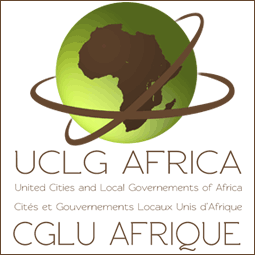Nigeria: Nigeria: NGA Focuses On PIB, Gas Revolution
2012/11/02
Nigeria: NGA Focuses On PIB, Gas Revolution
The Nigerian Gas Association (NGA) will seek solutions to the divergent views on the Petroleum Industry Bill (PIB) and the gas revolution programme of the Federal Government in its upcoming 8th International Gas Conference and Exhibition scheduled for next month in Abuja.
President of NGA, Mr. Chima Ibeneche, said what was required was for the investors and those interested in the sustainability of the gas industry to continue to be focused and committed to the full implementation of agreed industry deliverables.For the past years proposed legislation to overhaul the government's relationship with exploration and production companies has been under consideration.
With the theme: "The Gas Revolution: Industry Feedback on the Gains, Challenges and Opportunities," the conference would provide an answer to the question of how energy sector contracts would work in the next.
The PIB proposes reforms so profound that almost amount new investment is on hold until the questions raised by this legislation are answered. NGA 2012 Business session on PIB is a veritable platform to hear industry and regulators perspectives on PIB 2012.
- Comments
- Related Articles
-
Minister of Petroluem resources, Diezani Alison-Madueke
2012/12/31 Minister of Petroluem resources, Diezani Alison-Madueke has said that with the current national consumption rate at 110,000 metric tonnes (MT) per annum of Liquified Petroleum Gas (LPG), Nigeria is ranked part the lowest consumers of LPG in Africa. Speaking at the opening of the LPG Strategic Workshop and Conference in Abuja, the minister said growing the LPG market in Nigeria is a critical component of the country’s Gas Master plan. -
MCC Selects Countries Eligible for New Programs
2012/12/30 At its quarterly conference December 19, the U.S. Millennium Challenge Corporation (MCC) board of directors selected Liberia, Niger, Sierra Leone, Morocco and Tanzania as eligible to develop proposals for new compacts, and Guatemala as eligible for a Threshold Program. "This year's selection decisions are a testament to the 'MCC Effect,' the ability of MCC to provide incentives for nations to adopt policy reforms and strengthen institutions in order to become eligible for an MCC compact," said Daniel W. Yohannes, MCC's chief executive officer. -
Infrastructure evolution set to test tower space
2012/12/29 We have come to expect technology advances that result in consumer electronics equipment getting smaller, additional powerful and in most cases cheaper. This process can be seen in the hands and pockets of most consumers where that smartphone or tablet device houses additional processing power and came at a cheaper price than desktop computers of a decade ago. -
Airtel Nigeria Completes LTE Trial
2012/12/27 Mobile service provider Airtel Nigeria has taken a giant stride in its quest to pioneer innovation and lead a new phase of telecoms revolution in the country as it announces the successful completion of the Long Term Evolution (LTE) trial in Lagos, the commercial nerve centre of Nigeria. LTE, widely accepted as the true 4G, is a standard for wireless communication of high-speed data for mobile phones and data terminals. It is based on advanced network technologies with a central focus of increasing the capacity and speed using a different radio interface together with enhanced core network. -
Efforts to improve critical routes on federal roads
2012/12/27 A whopping N500 billion would be required annually for the next years to fix Nigerian ailing roads and bring them to sync with road infrastructure development in other thriving nations in the world. This was disclosed recently by the Minister of Works, Mr. Mike Onolememen. Onolememen who is an Architect, told the Home of Representatives' Committee on Works that the average annual budget of about N100 billion for road development is grossly inadequate for the country's 35,000 kilometre of Federal roads.
-
- Trending Articles
-
- GABON: Final day of the New York Forum Africa in Libreville 2012-06-25
- TURKEY: Turkey Real Estate 2012-07-24
- AFRICA: Ethiopia, Zambia, Cape Verde: Clarification on the management of television and radio rights
- BRAZIL: Brazilian Gradiente launches IPHON
- MEXICO: Another stab at radical change in telecommunications
- TANZANIA: Tanzania to restrict size of land investors can lease



.gif?1356023993)
.gif2_.gif?1356029657)




